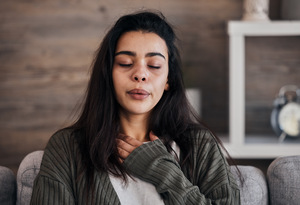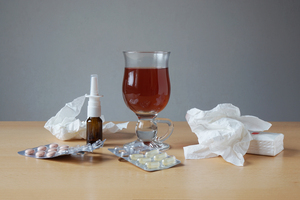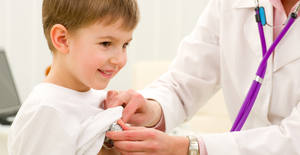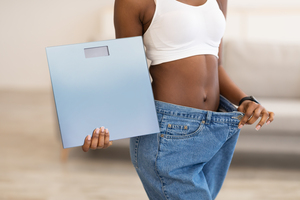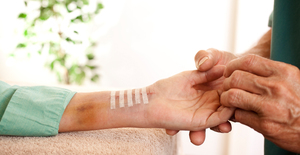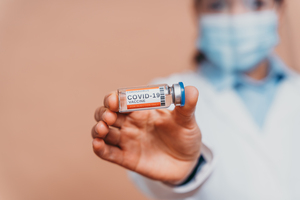Key points
- Dehydration can occur easily in summer due to increased sweating, leading to fatigue, dizziness, and even heat stroke if not addressed.
- Staying hydrated is not just about drinking water, but also consuming water-rich foods, setting hydration reminders, and watching for early signs of dehydration.
- Severe dehydration symptoms like confusion, rapid heartbeat, and inability to keep fluids down require immediate medical attention.
- Hydration strategies include starting the day with water, carrying a water bottle, flavoring water naturally, and hydrating before and after physical activity.
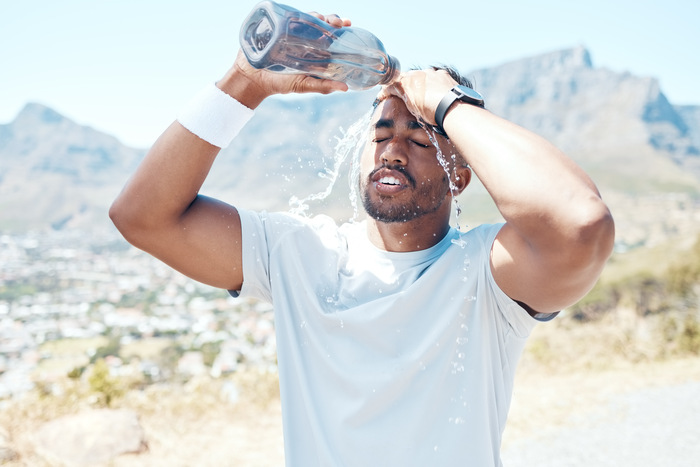
It’s surprisingly easy to get dehydrated in the summer, often without even realizing it. Whether you’re chasing kids around the park, going for a long run, or just spending time outside in the heat, your body loses water faster than you think. The signs of dehydration — like fatigue, dizziness, headaches, or dry mouth — can sneak up quickly, especially during long, hot days. And if you’re not careful, it can escalate into more serious conditions like heat exhaustion or heat stroke, according to the CDC. But staying hydrated doesn’t have to mean chugging gallons of plain water. With the right strategies, you can keep your body cool, energized, and functioning at its best all summer long.
Why hydration matters more in hot weather
When the temperature rises, your body works harder to stay cool, mainly by sweating. While sweating is essential for regulating your internal temperature, it also means you’re losing water (and electrolytes) at a much faster rate than usual. Even mild physical activity in the heat can lead to significant fluid loss, and if you’re not consciously replacing it, dehydration can set in quickly.
Dehydration affects more than just your thirst. It can lead to dips in energy, headaches, dizziness, trouble focusing, and even muscle cramps. Over time, chronic dehydration can strain your organs and make it harder for your body to function efficiently. That’s why understanding how to stay hydrated in the summer isn’t just about comfort—it’s about protecting your health.
7 simple hydration hacks for summer
Drinking more water sounds easy, but actually doing it every day, especially in the heat, can be a challenge. The good news is that staying hydrated doesn't have to mean constantly chugging from a water bottle. Whether you're chasing your kids, working outdoors, or just trying to avoid that afternoon slump, these summer hydration tips are easy to weave into your day and will help you stay cool, energized, and ahead of dehydration.
1. Start your day with water, not coffee
After 6–8 hours of sleep, your body wakes up naturally dehydrated. Starting your morning with a glass of water helps replenish fluids and jumpstart your metabolism before caffeine kicks in. To give it an extra boost, try adding a pinch of sea salt for electrolytes or a squeeze of lemon for a refreshing dose of vitamin C and flavor. It’s a small shift that sets the tone for better hydration all day.
2. Eat water-rich foods
One of the easiest (and tastiest) ways to boost your hydration is by eating foods with high water content. Fruits and veggies like watermelon, cucumber, oranges, strawberries, and celery are over 90% water and packed with nutrients. These foods help you stay hydrated without the effort of remembering to drink, making them perfect for snacks, salads, or sides during warm-weather meals.
3. Carry a water bottle you actually like
It might sound superficial, but having a water bottle you genuinely enjoy using can make a big difference. Whether it’s a sleek design, your favorite color, or a straw lid that makes sipping easier, aesthetics and functionality go a long way. Consider using an insulated bottle that keeps your water cold for hours, especially helpful when you're out in the sun. The more convenient and pleasant it is to drink, the more likely you’ll stick with it.
4. Set hydration reminders
If you're someone who forgets to drink until you're already parched, hydration reminders can be a game-changer. Set phone alarms, use hydration tracking apps, or build water breaks into your existing routine — like drinking a glass before every meal or after every bathroom visit. These small prompts can help you stay consistent without having to think about it constantly.
5. Flavor your water naturally
If plain water feels like a chore, make it more exciting with natural flavor boosters. Try infusing your water with mint leaves, citrus slices, berries, or cucumber for a spa-worthy refreshment. You can prep a big pitcher of infused water in the fridge to enjoy throughout the day, or add a few ingredients to your to-go bottle for a quick flavor upgrade.
6. Hydrate before and after physical activity
If you're heading out for a workout, run, or even a long walk in the sun, don’t wait until after you’re drenched in sweat to rehydrate. Drink water before, during (if possible), and after physical activity to keep your body balanced and avoid dehydration. For intense or prolonged workouts, especially in the heat, consider an electrolyte drink to replenish sodium and other minerals lost through sweat.
7. Watch for sneaky dehydration signs
Sometimes, thirst isn’t your first warning sign — your body sends subtler cues first. Keep an eye out for dark yellow urine, dry lips, low energy, dizziness, or a lingering headache. These are early signs that you need more fluids, even if you don’t feel thirsty. Catching these signals early helps prevent more serious heat-related issues like heat exhaustion or dehydration-related fatigue.
When water isn’t enough: Signs you need medical attention
While most cases of mild dehydration can be reversed with fluids and rest, sometimes the heat takes a more serious toll. It’s important to recognize when drinking more water isn’t enough and when it’s time to seek medical attention.
Mild dehydration may cause symptoms like thirst, dry mouth, fatigue, or slightly darker urine. These can usually be managed at home by increasing fluid intake, resting in a cool place, and eating water-rich foods.
But serious heat-related illness, such as heat exhaustion or heat stroke, requires prompt medical care. Call your doctor, visit urgent care, or head to the emergency room if you or someone else experiences:
- Confusion or disorientation
- Dizziness or fainting
- Nausea or vomiting that prevents fluid intake
- Rapid heartbeat or breathing
- Skin that feels hot, red, or dry (even without sweating)
- Severe headache
- Muscle cramps that don’t go away
- No urination for over 8 hours
When in doubt, don’t wait — especially in extreme heat. Dehydration and heat illness can escalate quickly, so it’s always better to act early.
Think you're dehydrated? Book a same-day urgent care visit
If you’re experiencing symptoms of moderate to severe dehydration — like dizziness, confusion, rapid heartbeat, or an inability to keep fluids down — it’s important to get checked out by a medical professional.
Whether you need care today or want to plan ahead, Solv can help you find same-day or next-day availability at urgent care clinics near you.
FAQs
Why is staying hydrated particularly important during the summer?
In hot weather, our bodies work harder to stay cool, primarily through sweating. This process leads to a faster loss of water and electrolytes than usual. Even mild physical activity can result in significant fluid loss. If this fluid isn't replaced, dehydration can occur quickly, leading to symptoms such as fatigue, headaches, dizziness, and trouble focusing. Chronic dehydration can strain your organs and reduce your body's efficiency.
What are some effective ways to stay hydrated during the summer?
There are several strategies to stay hydrated during the summer. These include starting the day with a glass of water instead of coffee, consuming water-rich foods like fruits and vegetables, carrying a water bottle you like, setting hydration reminders, flavoring your water naturally, hydrating before and after physical activity, and watching for early signs of dehydration.
What are some early signs of dehydration to watch out for?
Early signs of dehydration can include dark yellow urine, dry lips, low energy, dizziness, or a lingering headache. These signs can appear even if you don't feel thirsty. Recognizing these signs early can help prevent more serious heat-related issues like heat exhaustion or dehydration-related fatigue.
When should I seek medical attention for dehydration?
While mild dehydration can usually be managed at home, serious heat-related illnesses like heat exhaustion or heat stroke require prompt medical care. You should seek medical attention if you or someone else experiences confusion or disorientation, dizziness or fainting, nausea or vomiting that prevents fluid intake, rapid heartbeat or breathing, skin that feels hot, red, or dry (even without sweating), severe headache, muscle cramps that don’t go away, or no urination for over 8 hours.
What should I do if I think I'm severely dehydrated?
If you’re experiencing symptoms of moderate to severe dehydration—like dizziness, confusion, rapid heartbeat, or an inability to keep fluids down—it’s important to get checked out by a medical professional. You can book a same-day urgent care visit or find next-day availability at urgent care clinics near you.

